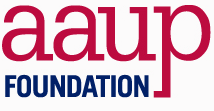Faculty Appointments
The AAUP has for almost a century established and defended principles and procedures relating to academic appointments. As the AAUP's foundational 1940 Statement of Principles on Academic Freedom and Tenure declares, "Tenure is a means to certain ends; specifically: (1) freedom of teaching and research and of extramural activities, and (2) a sufficient degree of economic security to make the profession attractive to men and women of ability. Freedom and economic security, hence, tenure, are indispensable to the success of an institution in fulfilling its obligations to its students and to society."
Increasingly in recent decades, tenure and the ends it exists to protect are under attack, as college and university administrations adopt a corporate model of governance and hire more and more faculty off the tenure track. These contingent appointments now equal about two thirds of the total faculty appointments in the United States, with part-time positions equaling half.
The work of faculty is—by its very nature—virtually unbounded. In addition to teaching classes, advising students, and serving on departmental committees, faculty members are expected to keep abreast of developments in their fields of specialization by engaging in original research and scholarship, participating in activities of one or more professional societies, and to read the latest research studies produced by their colleagues. There is always a new question to ask, further analysis to complete, or another issue to discuss.
An academic career demands an intense—some academics would say total—commitment. But faculty members, like anyone else, are not defined entirely by their professional pursuits. They are members of families with obligations to care for and devote time to their loved ones. Finding the appropriate balance between an academic career and family responsibilities has been especially difficult for women, who in our society continue to perform the bulk of family work: childrearing, domestic chores, and care for family members with special needs. The AAUP's efforts to address the special challenge of making academic careers more compatible with participation in family life proceed from the Statement of Principles on Family Responsibilities and Academic Work (2001).
The AAUP Foundation supports research into faculty appointments and working conditions, and work that furthers understanding of work and family issues, as well as projects that promote protections for academic freedom for all faculty.

